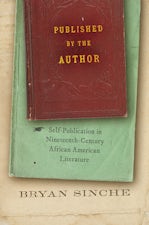Black Life on the Mississippi
Slaves, Free Blacks, and the Western Steamboat World
By Thomas C. Buchanan
272 pp., 6 x 9, 34 illus., 5 tables, 2 maps, appends., notes, bibl., index
-
Paperback ISBN: 978-0-8078-5813-4
Published: February 2007 -
E-book EPUB ISBN: 978-0-8078-7656-5
Published: March 2006 -
E-book PDF ISBN: 979-8-8908-7373-6
Published: March 2006
Buy this Book
- Paperback $32.50
- E-Book $22.99
For Professors:
Free E-Exam Copies
Buchanan explores the creative efforts of steamboat workers to link riverside African American communities in the North and South. The networks African Americans created allowed them to keep in touch with family members, help slaves escape, transfer stolen goods, and provide forms of income that were important to the survival of their communities. The author also details the struggles that took place within the steamboat work culture. Although the realities of white supremacy were still potent on the river, Buchanan shows how slaves, free blacks, and postemancipation freedpeople fought for better wages and treatment.
By exploring the complex relationship between slavery and freedom, Buchanan sheds new light on the ways African Americans resisted slavery and developed a vibrant culture and economy up and down America's greatest river.
About the Author
Thomas C. Buchanan is assistant professor of history at the University of Adelaide.
For more information about Thomas C. Buchanan, visit
the
Author
Page.
Reviews
"Draws on a remarkable range of sources."--Arkansas Historical Quarterly
"A long, sharply focused look at the life of African American river workers both during and after slavery."--Missouri Historical Review
"Buchanan's research is impeccable. . . . Unreservedly an important book--vital for students of the Mississippi and relevant far more widely."--Journal of American Studies
"A solid work of scholarship. . . . A well-illustrated and attractively produced volume."--Western Historical Quarterly
"Offers trenchant insights into the stark conditions of everyday life along the Mississippi."--Louisiana History
"A valuable contribution to the ever-expanding literature on American slavery and freedom. . . . The book deserves a wide readership.”--Civil War History




